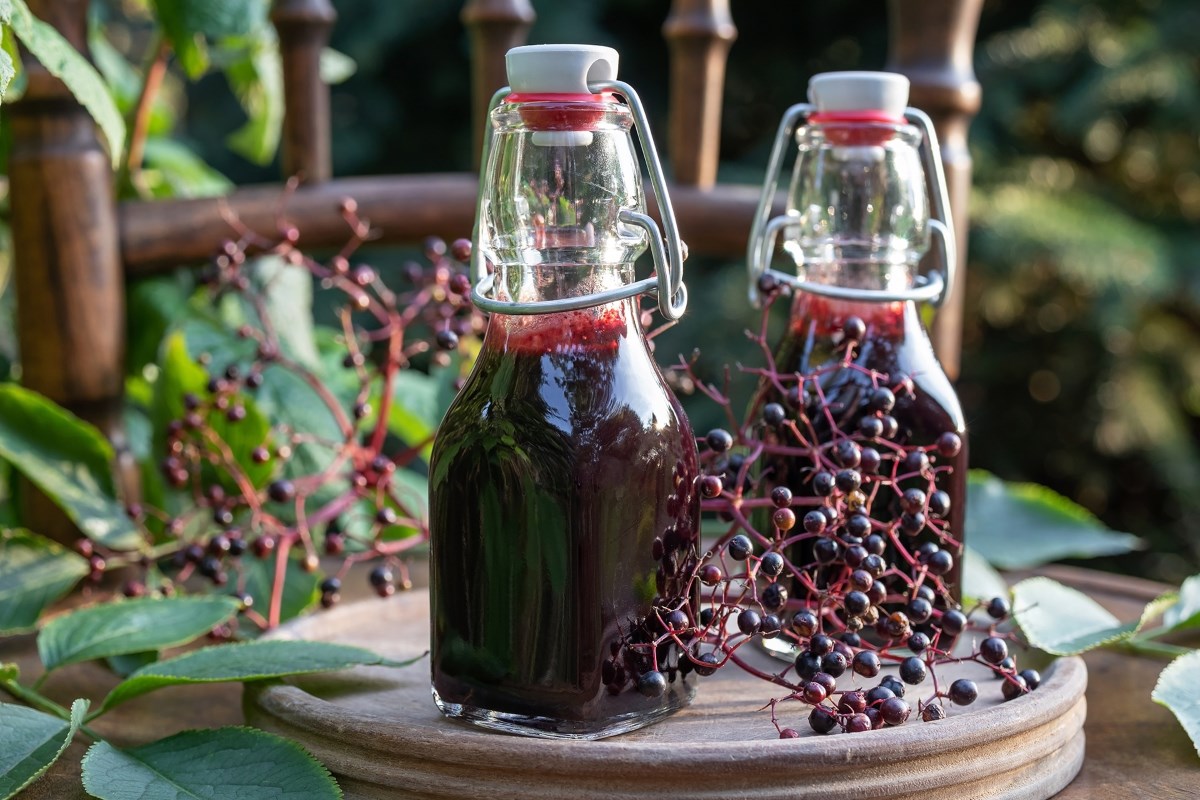

Articles
How To Store Elderberry Syrup
Modified: February 20, 2024
Learn how to store elderberry syrup properly with these helpful articles. Keep your syrup fresh and maintain its potency for longer.
(Many of the links in this article redirect to a specific reviewed product. Your purchase of these products through affiliate links helps to generate commission for Storables.com, at no extra cost. Learn more)
Introduction
Welcome to the world of elderberry syrup! Whether you’re a seasoned user or just discovering its benefits, one thing is certain – properly storing elderberry syrup is crucial for maintaining its quality and effectiveness. Elderberry syrup has gained popularity as a natural remedy for boosting the immune system and treating cold and flu symptoms. It’s packed with antioxidants, vitamins, and minerals that can help support overall health.
While making elderberry syrup at home is relatively simple, understanding the best practices for storing it will ensure that it remains potent and safe for consumption. In this article, we will guide you through the process of storing elderberry syrup, covering various methods such as refrigeration, freezing, and canning.
Before diving into the storage methods, let’s take a quick look at some of the incredible benefits of elderberry syrup.
Key Takeaways:
- Properly storing elderberry syrup is crucial for maintaining its immune-boosting properties and freshness. Choose the right containers, follow preparation steps, and use refrigeration, freezing, or canning methods to preserve its potency.
- Labeling your elderberry syrup with dates, ingredients, and storage method is essential for tracking freshness. Follow recommended storage times, inspect for spoilage, and use clean utensils to maximize its effectiveness.
Read more: How To Store Elderberries
Benefits of Elderberry Syrup
Elderberry syrup is not only delicious, but it also offers a wide range of health benefits. Here are some of the key advantages of incorporating elderberry syrup into your daily routine:
- Boosts the immune system: Elderberries are rich in antioxidants and vitamins A, B, and C, which help strengthen the immune system. Regular consumption of elderberry syrup can potentially reduce the risk of infections, colds, and flu.
- Provides respiratory support: Elderberry syrup has been found to ease respiratory discomfort caused by allergies, asthma, and other respiratory conditions. It helps relieve coughs and congestion, making it a popular natural remedy for respiratory health.
- Anti-inflammatory properties: Elderberry syrup contains anti-inflammatory compounds that can help reduce inflammation and oxidative stress in the body. This can be beneficial for managing chronic diseases and promoting overall well-being.
- Rich in antioxidants: Elderberries are packed with antioxidants, including anthocyanins, which help fight off free radicals and protect cells from damage. Antioxidants play a vital role in maintaining healthy skin, supporting brain health, and reducing the risk of chronic diseases.
- Supports cardiovascular health: The high levels of flavonoids in elderberries contribute to improved heart health by reducing cholesterol levels, regulating blood pressure, and enhancing blood circulation. Regular consumption of elderberry syrup may help lower the risk of heart disease.
- Aids digestive health: Elderberry syrup has gentle laxative properties and contains fiber, which promotes healthy digestion and relieves constipation. It can also help maintain a healthy gut by supporting the growth of beneficial bacteria.
These are just a few of the many benefits that elderberry syrup has to offer. Now that you’re aware of the amazing advantages, let’s discuss the best ways to store your elderberry syrup to preserve its potency and freshness.
Choosing the Right Containers
When it comes to storing elderberry syrup, selecting the right containers is crucial to ensure its longevity and quality. Here are a few factors to consider when choosing containers for your syrup:
- Material: Opt for glass or food-grade plastic containers to store your elderberry syrup. Glass containers are ideal as they are non-reactive and do not leach any chemicals into the syrup. Plastic containers should be certified food-grade to ensure there is no contamination.
- Size: Consider the amount of elderberry syrup you generally use or make at a time. Choose containers that can accommodate the desired quantity comfortably without leaving too much headspace, as excess air can lead to oxidation and spoilage.
- Sealability: Look for containers that have airtight seals to prevent air and moisture from getting in. This will maintain the freshness and potency of the syrup for a longer period. Screw-top lids or flip-top caps are recommended for easy sealing and opening.
- Dark-colored containers: Elderberry syrup is light-sensitive and can degrade when exposed to direct sunlight. Consider using dark-colored glass containers or store them in a cool, dark place to protect the syrup from light-induced deterioration.
- Easy pouring: Choose containers with a narrow mouth or a spout to facilitate easy pouring without spillage or wastage. This will make it convenient to use the syrup without any mess.
By considering these factors, you can select containers that provide optimal conditions for storing your elderberry syrup. Now that you have chosen the right containers, let’s move on to the next step – preparing the syrup for storage.
Preparing the Syrup for Storage
Before storing your elderberry syrup, it’s important to take certain steps to ensure its quality and longevity. Here are the key steps to prepare the syrup for storage:
- Cooling: Allow the elderberry syrup to cool completely before transferring it to storage containers. Hot syrup can create condensation inside the containers, leading to potential spoilage.
- Straining: If you have added any herbs or spices to your elderberry syrup recipe, strain the syrup to remove any solids or particles. This will ensure a smoother consistency and prevent any unwanted texture or sediment in the syrup.
- Sanitizing jars: Before pouring the syrup into the containers, make sure they are clean and sanitized. Wash the containers with hot soapy water, rinse them thoroughly, and then sanitize them by immersing them in boiling water for a few minutes.
- Filling the containers: Carefully pour the elderberry syrup into the sanitized containers, leaving a small headspace of about half an inch to allow for expansion during freezing or canning.
- Removing air: If using glass containers, tap them gently on a countertop to release any trapped air bubbles. Do not forcefully shake the containers, as this can introduce more air into the syrup.
- Sealing: Ensure that the containers are tightly sealed with their respective lids to create an airtight environment. This will prevent air and moisture from entering and potentially spoiling the syrup.
By following these steps, you can ensure that your elderberry syrup is properly prepared for storage. Now, let’s explore the various methods of storing elderberry syrup, starting with refrigeration.
Storing in the Refrigerator
Refrigeration is a popular method for storing elderberry syrup, especially if you plan to use it within a few weeks. Here’s how you can store your elderberry syrup in the refrigerator:
- Cooling: After preparing the syrup, allow it to cool completely at room temperature before transferring it to the refrigerator.
- Transfer to airtight containers: Pour the syrup into clean, airtight glass or food-grade plastic containers. Ensure that the containers are sealed tightly to prevent any air or moisture from getting in.
- Refrigerator placement: Place the filled containers in the refrigerator’s main compartment, as it provides a more stable and consistent temperature. Avoid storing the syrup in the refrigerator door, as it may be subjected to temperature fluctuations due to frequent opening and closing.
- Labeling: It’s essential to label the containers with the date of preparation to keep track of freshness and avoid confusion.
- Shelf life: Elderberry syrup stored in the refrigerator can typically remain fresh for up to 4-6 weeks. However, it’s always best to check for any signs of spoilage, such as mold, off odor, or changes in color or consistency, before consuming.
Remember to store your elderberry syrup away from strong-smelling foods or substances, as it can absorb odors easily. With proper refrigeration, you can enjoy the freshness and efficacy of your elderberry syrup for several weeks. However, if you have a larger quantity or plan to store it for an extended period, freezing or canning may be more suitable options.
Store elderberry syrup in a glass jar with a tight-fitting lid in the refrigerator. Make sure to label it with the date it was made and use it within 2-3 months for optimal freshness and potency.
Read more: How To Store Syrup
Freezing Elderberry Syrup
Freezing is an excellent method for storing elderberry syrup for an extended period. Here’s how you can freeze your elderberry syrup:
- Cooling: Allow the syrup to cool completely after preparation before transferring it to freezer-safe containers.
- Transfer to freezer containers: Pour the syrup into clean, airtight, freezer-safe glass jars or plastic containers. Leave some headspace to allow for expansion during freezing.
- Labeling: Clearly label the containers with the date of preparation to keep track of freshness.
- Freezer placement: Place the filled containers in the freezer’s coldest part, such as the back, to ensure consistent freezing and minimize temperature fluctuations.
- Thawing: When you’re ready to use the syrup, remove the desired amount from the freezer and allow it to thaw in the refrigerator. Avoid thawing and refreezing the syrup multiple times, as it can affect its quality.
- Shelf life: Elderberry syrup stored in the freezer can maintain its quality for up to 6-12 months. However, it’s always best to check for any signs of spoilage before consuming, such as off odor, changes in color or texture, or the presence of ice crystals.
Freezing elderberry syrup is a convenient way to store larger quantities for an extended period. It preserves the freshness and effectiveness of the syrup, allowing you to enjoy its benefits throughout the year. However, if you prefer a longer shelf life or want to preserve the syrup without relying on freezing, you can consider canning it.
Canning Elderberry Syrup
Canning is an excellent method for preserving elderberry syrup for long-term storage without the need for freezing. Here’s a step-by-step guide to canning your elderberry syrup:
- Prepare canning equipment: Gather all the necessary canning equipment, including sterilized canning jars, new lids, bands, a canning funnel, a jar lifter, and a large pot for boiling water.
- Sterilize the jars: Wash the canning jars, lids, and bands in hot, soapy water. Rinse them thoroughly and place them in a large pot filled with water. Bring the water to a boil and let the jars simmer for about 10 minutes to sterilize them. Remove the jars from the pot and let them air dry on a clean towel.
- Prepare the syrup: Follow your elderberry syrup recipe and cook the syrup according to the instructions. Allow the syrup to cool slightly before proceeding.
- Fill the jars: Using a canning funnel, carefully pour the hot syrup into the sterilized jars, leaving about 1/4 inch of headspace. Remove any air bubbles by running a clean spatula or bubble remover tool around the inside edge of the jar.
- Secure the lids: Wipe the rims of the jars with a clean, damp cloth to remove any residue or syrup. Place a new lid on each jar, and then screw on the bands until they are fingertip tight – not overly tightened.
- Process in boiling water: Place the filled and sealed jars into the canning pot, ensuring they are fully submerged in water. Bring the water to a boil and process the jars according to the recommended time for your altitude and jar size. Typically, this ranges from 10 to 20 minutes.
- Cooling and sealing: After the processing time is complete, carefully remove the jars from the pot using a jar lifter and place them on a towel or cooling rack. Let the jars cool completely. As they cool, you should hear the “pop” sound as the lids seal and become concave.
- Label and store: Once the jars are completely cooled, label them with the date of canning. Store the sealed jars in a cool, dark place away from direct sunlight. Properly sealed and stored elderberry syrup can last for up to 1-2 years.
Canning elderberry syrup is a fantastic option if you want to have shelf-stable syrup for an extended period. It allows you to preserve the syrup’s potency and flavor, making it readily available whenever you need it. Properly sealed jars of canned elderberry syrup also make excellent gifts for friends and family.
Using Proper Labeling
Labeling your elderberry syrup is an essential step in the storage process. Proper labeling ensures that you can easily identify the syrup and keep track of its freshness. Here are some tips for using proper labeling:
- Date: Always include the date of preparation or canning on the label. This allows you to know when the syrup was made and helps you monitor its shelf life.
- Ingredients: Make a note of the ingredients used in the syrup on the label. This is particularly helpful if you have multiple batches with different ingredients or variations.
- Storage method: Indicate whether the syrup is stored in the refrigerator, freezer, or has been canned. This information helps you quickly identify the appropriate storage location.
- Quantity: If you have multiple containers of elderberry syrup, consider labeling them with the quantity. This will give you a better idea of how much syrup you have left and when you need to make more.
- Additional notes: Add any specific instructions or additional information to the label. For example, you can note if the syrup is for personal use or if it contains any special herbs or flavors.
Using consistent and clear labels not only helps you stay organized but also ensures that you can easily identify and differentiate your elderberry syrup from other stored items. It’s also important to use waterproof or oil-resistant labels to prevent smudging or fading over time.
Proper labeling not only helps with organization but also promotes safety. It helps prevent confusion and ensures that you can easily identify your elderberry syrup without any mistakes. With clear and informative labels, you’ll have a hassle-free experience when reaching for your stored syrup.
Shelf Life and Storage Tips
Understanding the shelf life of elderberry syrup and implementing proper storage techniques is vital to ensure its quality and effectiveness. Here are some important tips to keep in mind:
- Refrigerator shelf life: Elderberry syrup stored in the refrigerator can typically remain fresh for 4-6 weeks. However, it’s always best to check for any signs of spoilage, such as mold, off odor, or changes in color or consistency, before consuming.
- Freezing duration: Elderberry syrup stored in the freezer can maintain its quality for 6-12 months. It’s important to consume the syrup within this time frame to ensure optimal flavor and efficacy.
- Canned shelf life: Properly canned elderberry syrup can last for 1-2 years when stored in a cool, dark place away from direct sunlight. Regularly check the jars for any signs of spoilage, such as bulging lids, leaks, or off odors, before consuming.
- Keep in a cool, dark place: Whether stored in the refrigerator, freezer, or pantry, elderberry syrup should be kept away from heat, light, and humidity. A cool, dark place preserves the syrup’s quality and extends its shelf life.
- Prevent cross-contamination: Store elderberry syrup away from strong-smelling foods or substances, as it can absorb odors easily. This helps maintain the syrup’s original aroma and flavor.
- Avoid excessive heat: Elderberry syrup should not be exposed to excessive heat, as it can affect its quality. Avoid storing it near stovetops, ovens, or other sources of direct heat.
- Check for signs of spoilage: Regularly inspect the syrup for any signs of spoilage, such as mold, off odor, changes in color or texture, or presence of foreign particles. If you notice any abnormalities, discard the syrup to ensure safety.
- Use clean utensils: Always use clean utensils, such as a spoon or dropper, to extract the syrup from its container. This helps maintain the purity of the syrup and prevents contamination.
- Follow recommended dosages: To ensure the effectiveness and safety of elderberry syrup, it’s important to follow the recommended dosages provided by healthcare professionals or the instructions on the syrup’s packaging.
- Keep track of storage time: Label the containers with the date of preparation or canning to keep track of storage time. This will help you monitor freshness and determine if it’s time to replenish your supply.
By following these storage tips and guidelines, you can enjoy the full benefits of elderberry syrup while ensuring its potency and safety. Proper storage practices play a crucial role in maintaining the quality and effectiveness of this natural remedy.
Read more: How To Store Dried Elderberries
Conclusion
Properly storing elderberry syrup is essential to maintain its quality, potency, and freshness. Whether you choose to refrigerate, freeze, or can your syrup, following the correct storage methods will ensure that you can enjoy its numerous benefits for an extended period.
Elderberry syrup, known for its immune-boosting properties and rich antioxidant content, has become a popular natural remedy for supporting overall health. By incorporating elderberry syrup into your daily routine, you can help strengthen your immune system, alleviate respiratory discomfort, reduce inflammation, and support cardiovascular and digestive health.
When it comes to storing elderberry syrup, several factors need to be considered. Choosing the right containers, such as glass or food-grade plastic, and ensuring they are sealable and dark-colored, is crucial. Proper preparation before storage, including cooling, straining, and sanitizing the containers, is vital to maintain the syrup’s quality.
Depending on your needs and preferences, you can store elderberry syrup in the refrigerator, freezer, or through canning. Refrigeration is suitable for short-term storage, while freezing allows for longer shelf life. Canning provides a shelf-stable option for preserving larger quantities of syrup.
Labeling your syrup correctly with dates, ingredients, storage method, and additional notes will help you keep track of its freshness and usage. Following recommended storage times and conducting regular inspections for spoilage signs will ensure the syrup’s safety and efficacy.
By implementing these best practices and storage tips, you can store your elderberry syrup properly and enjoy its benefits for an extended period. Remember to use clean utensils and follow recommended dosages when consuming the syrup to maximize its effectiveness.
So, whether you’re making your own elderberry syrup or buying it from a trusted source, make sure to store it correctly to preserve its quality and harness its immune-boosting properties whenever you need it. Enjoy the natural goodness of elderberry syrup and stay healthy!
Frequently Asked Questions about How To Store Elderberry Syrup
Was this page helpful?
At Storables.com, we guarantee accurate and reliable information. Our content, validated by Expert Board Contributors, is crafted following stringent Editorial Policies. We're committed to providing you with well-researched, expert-backed insights for all your informational needs.
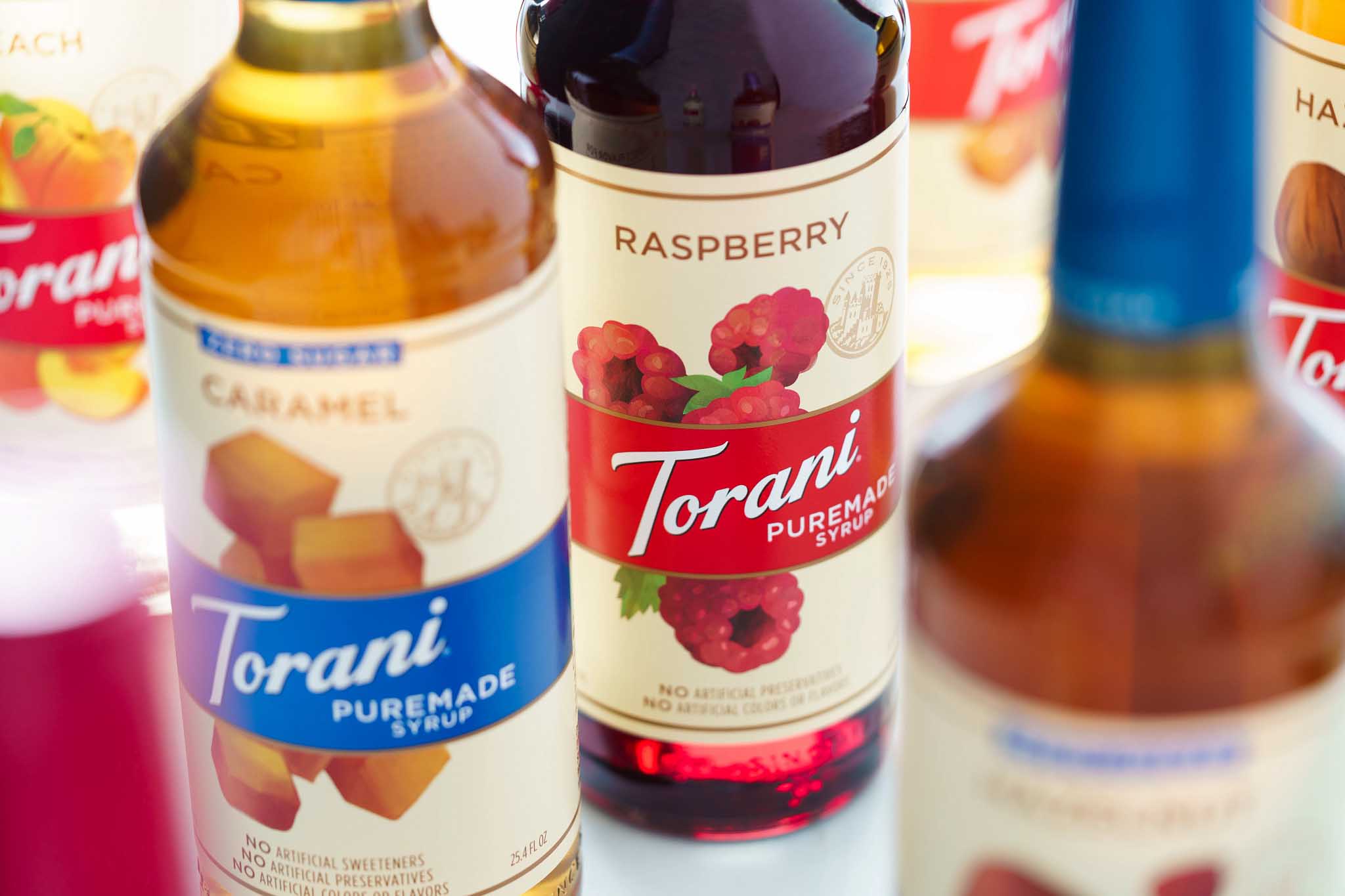
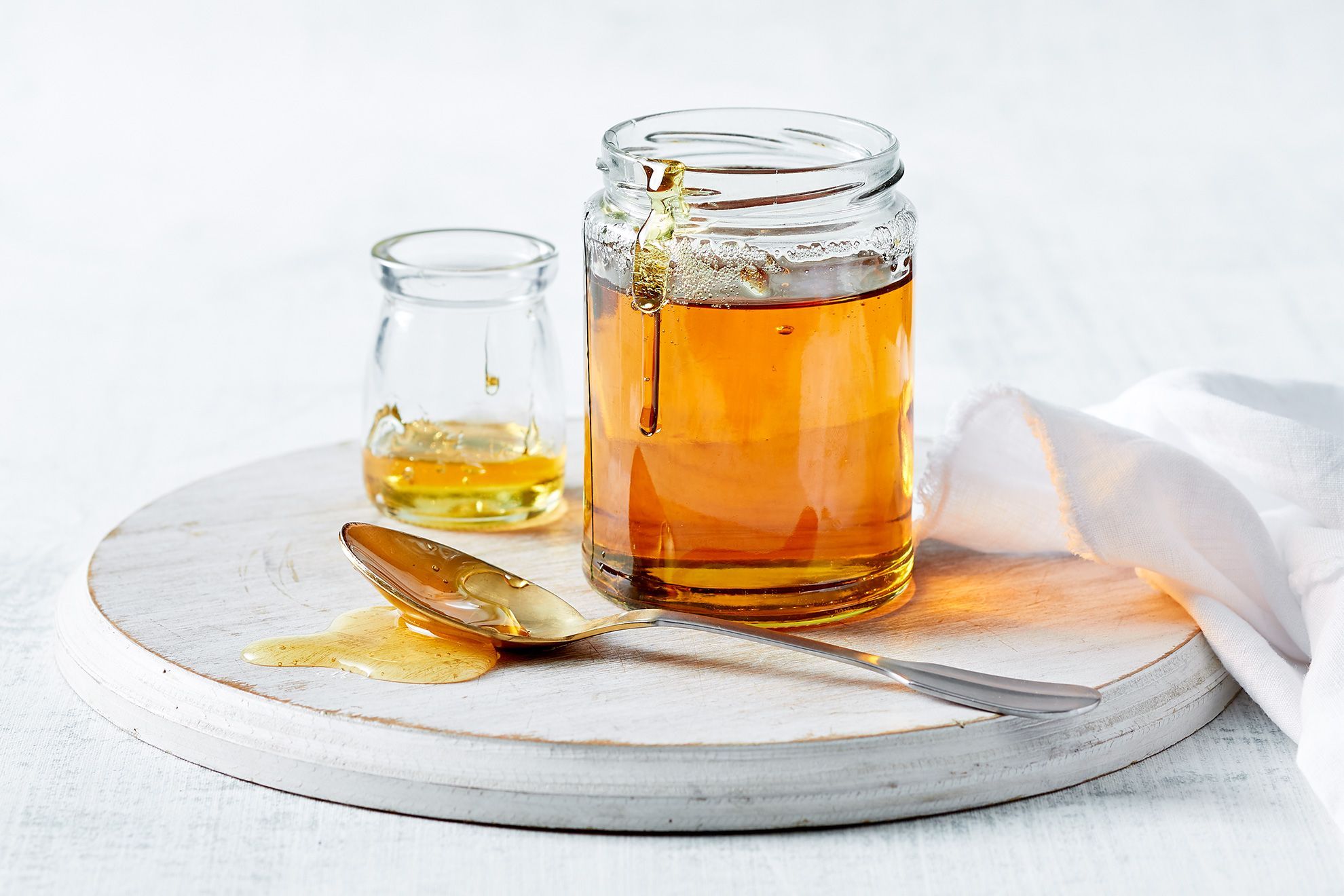
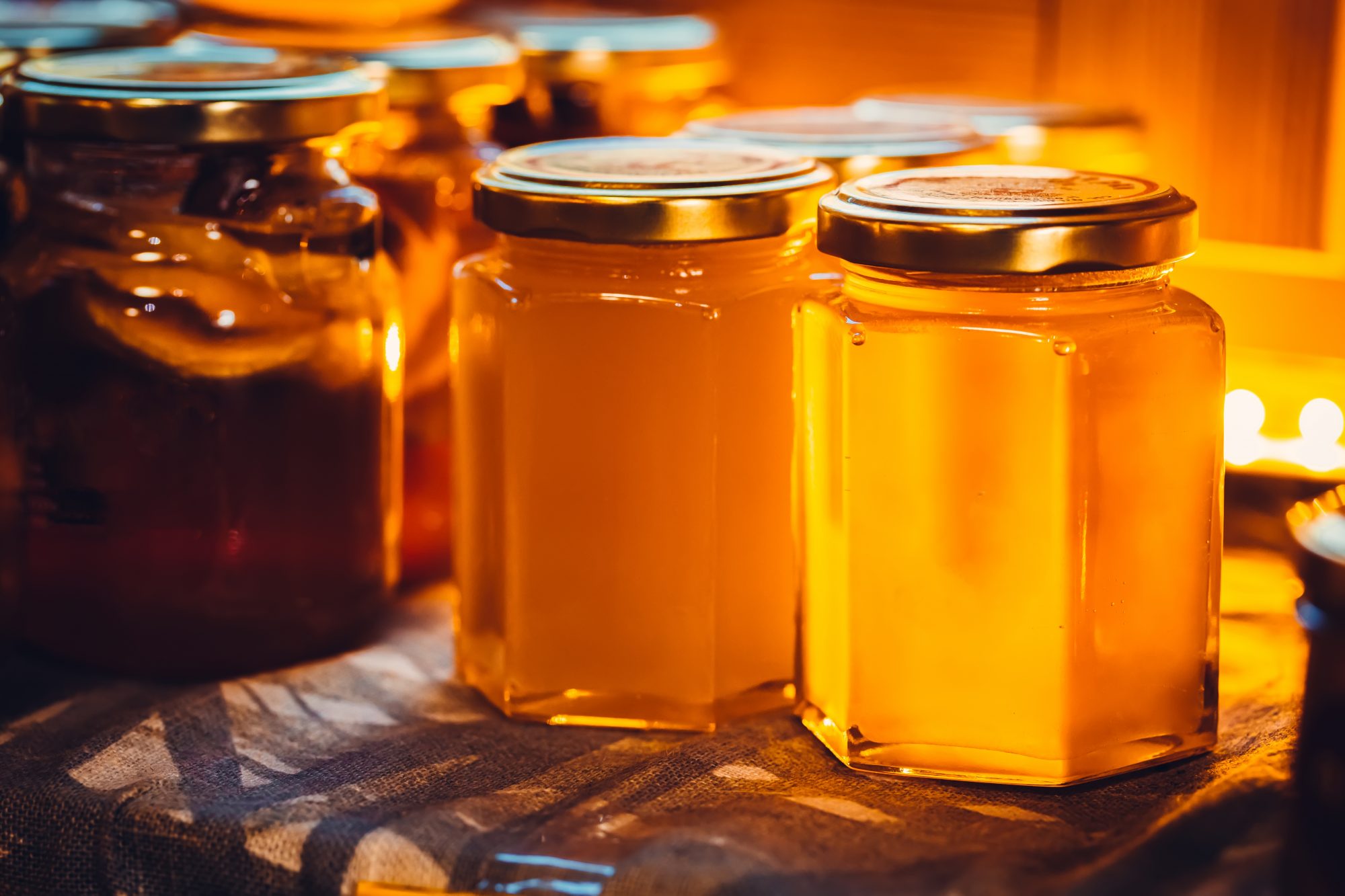
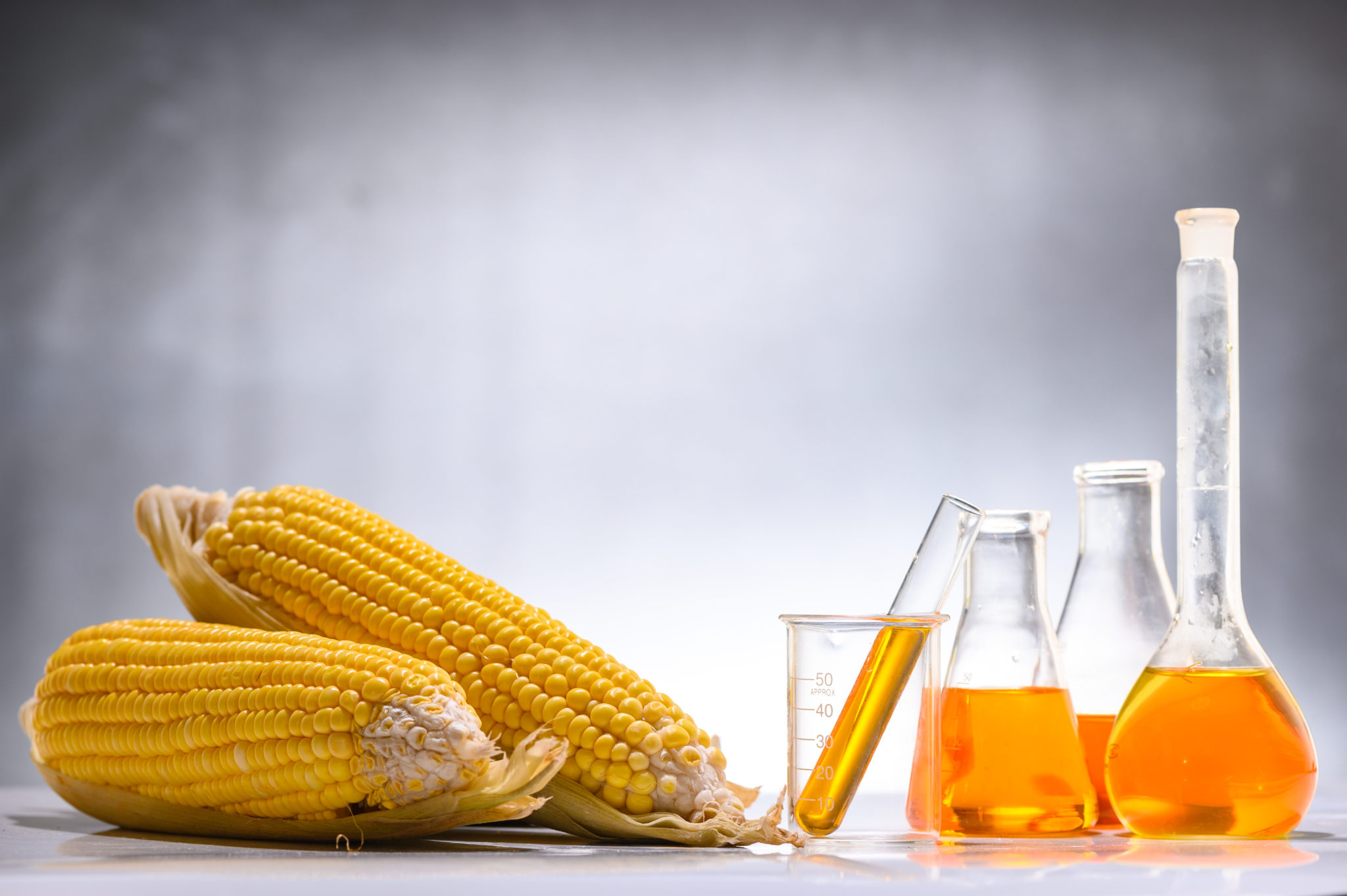
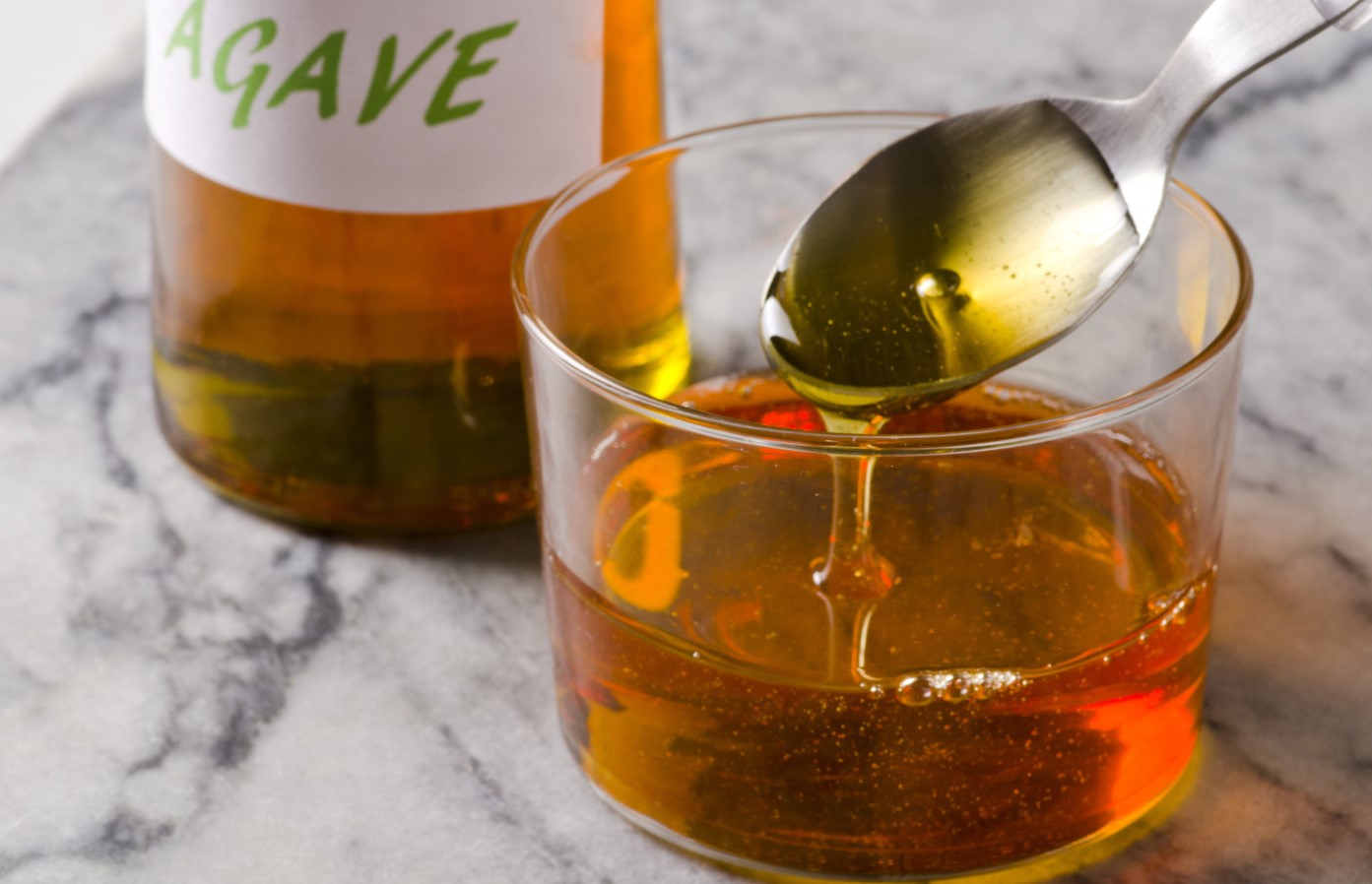
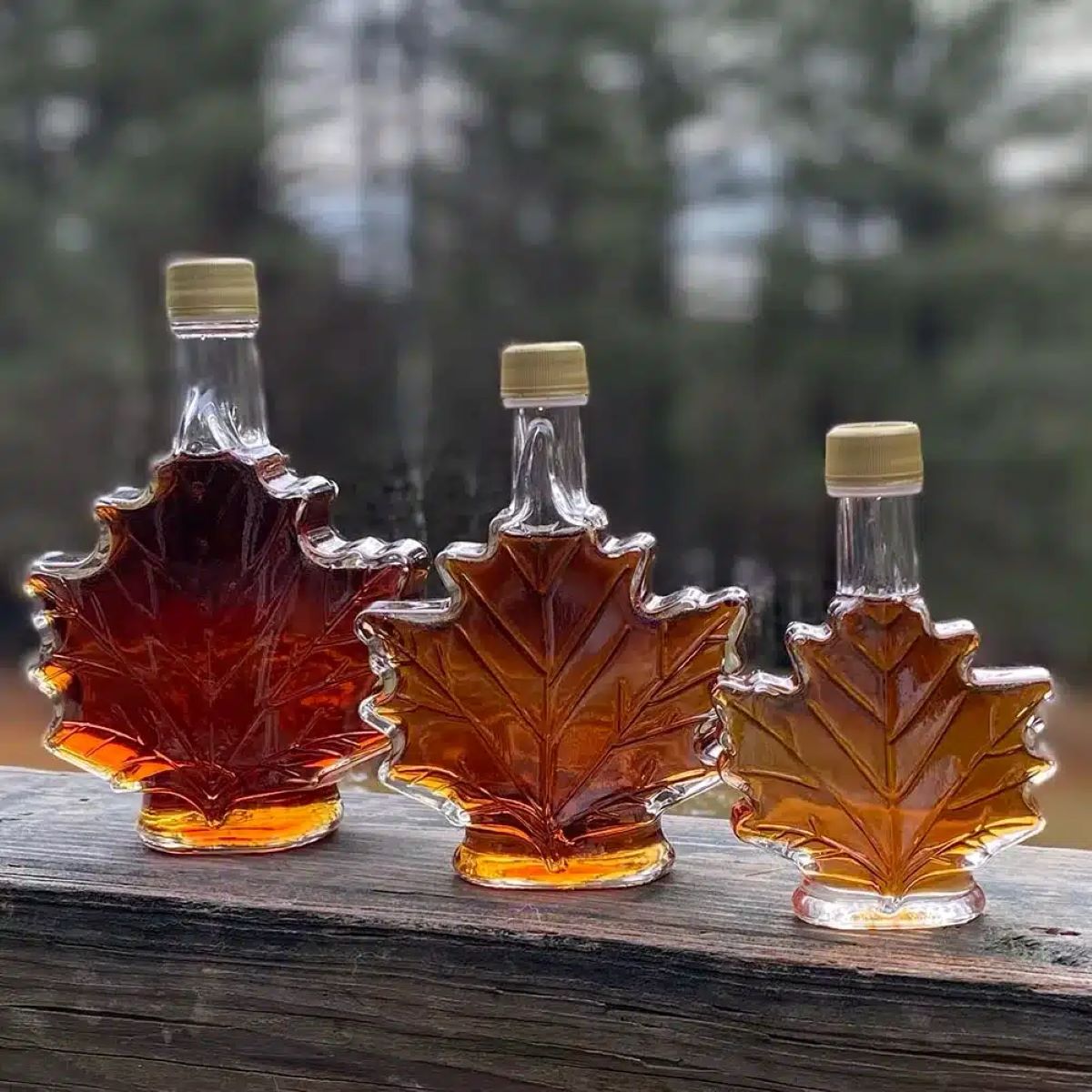
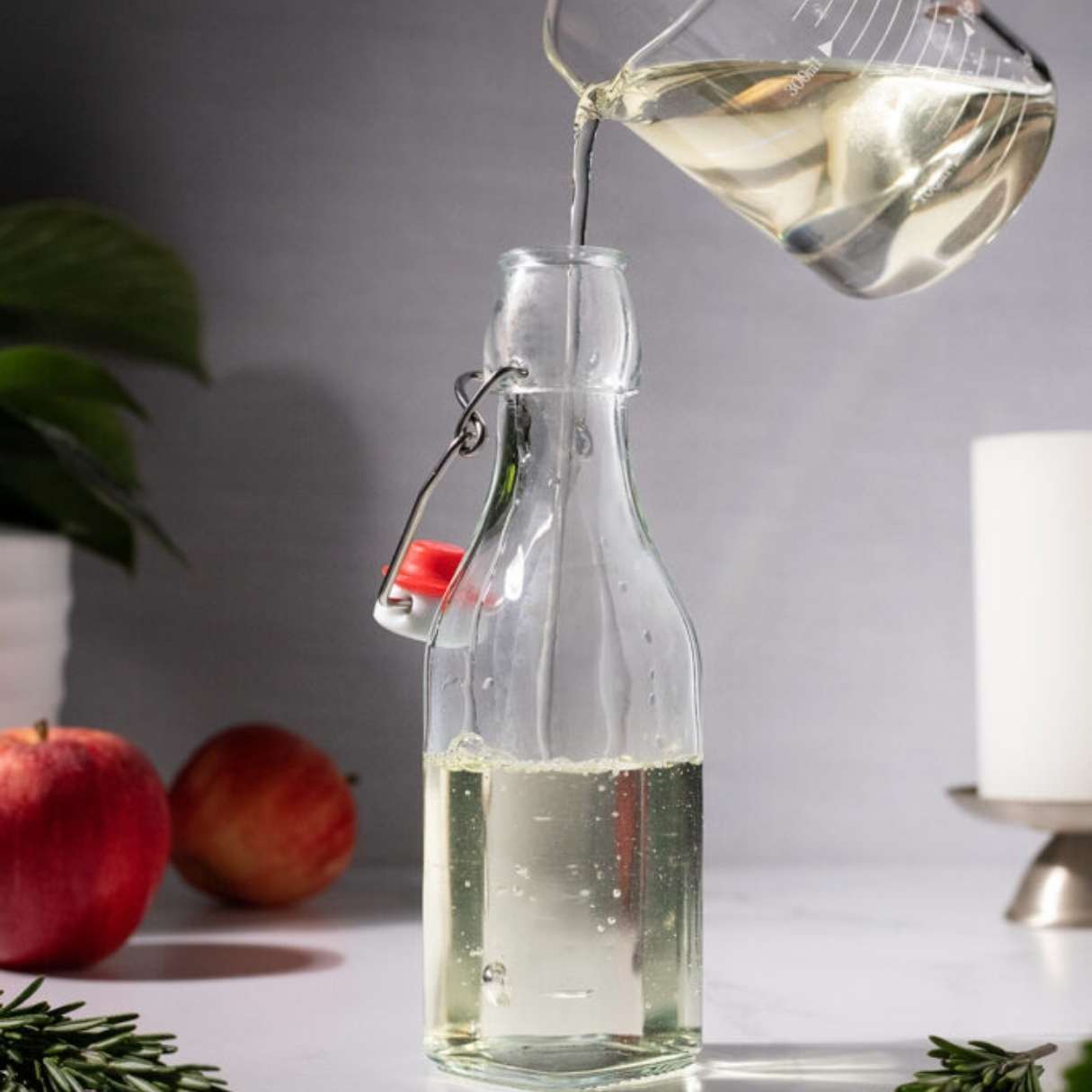
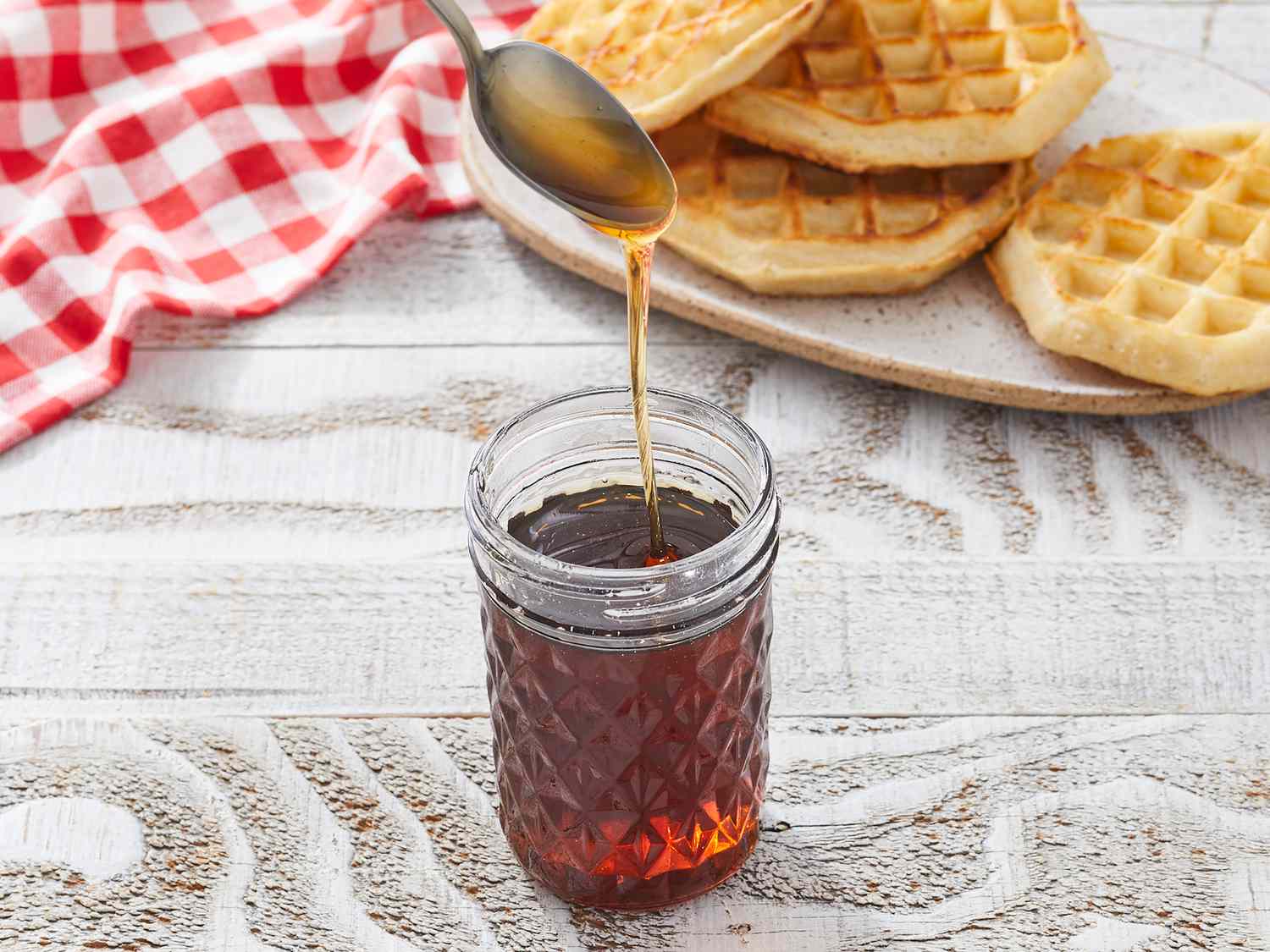
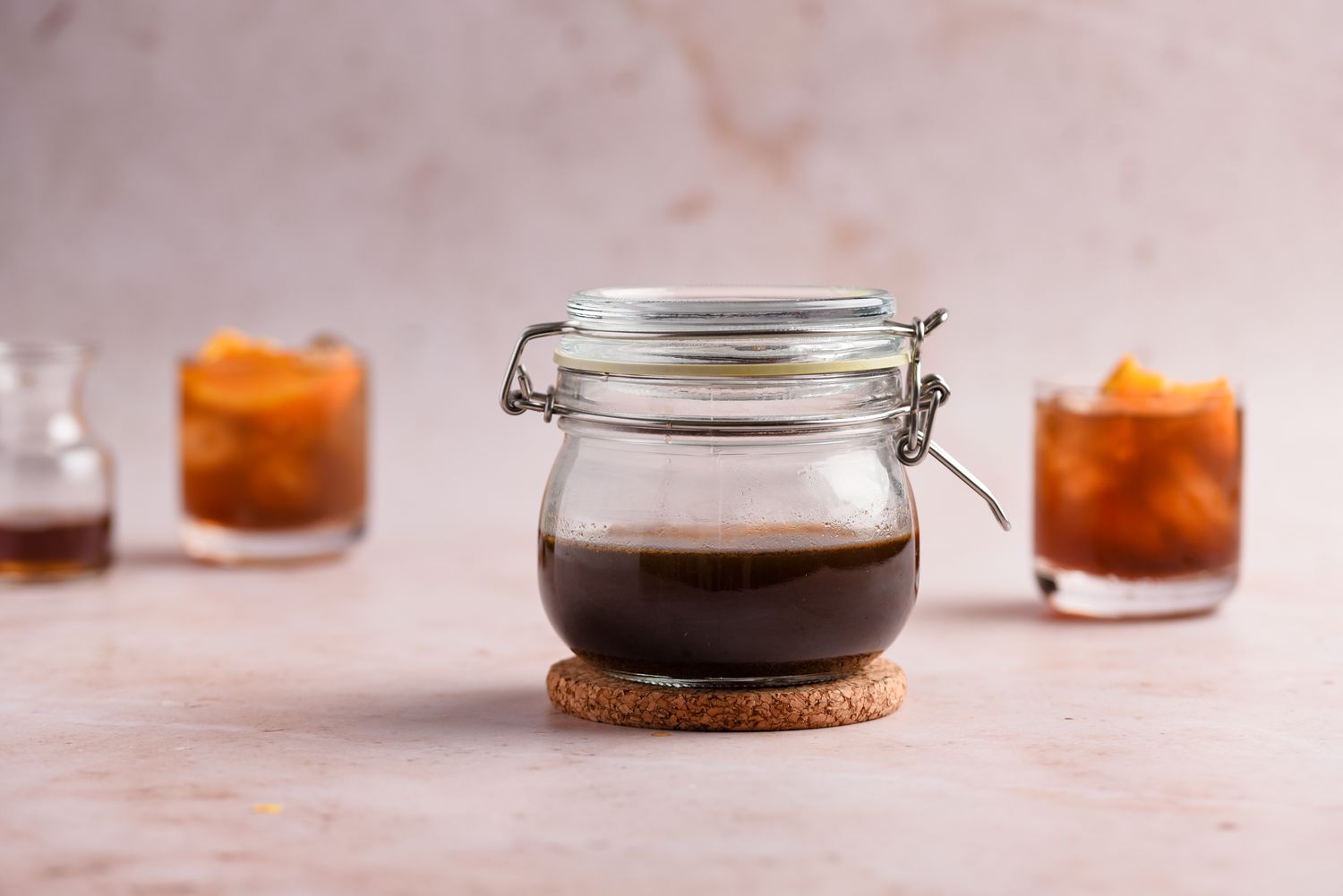
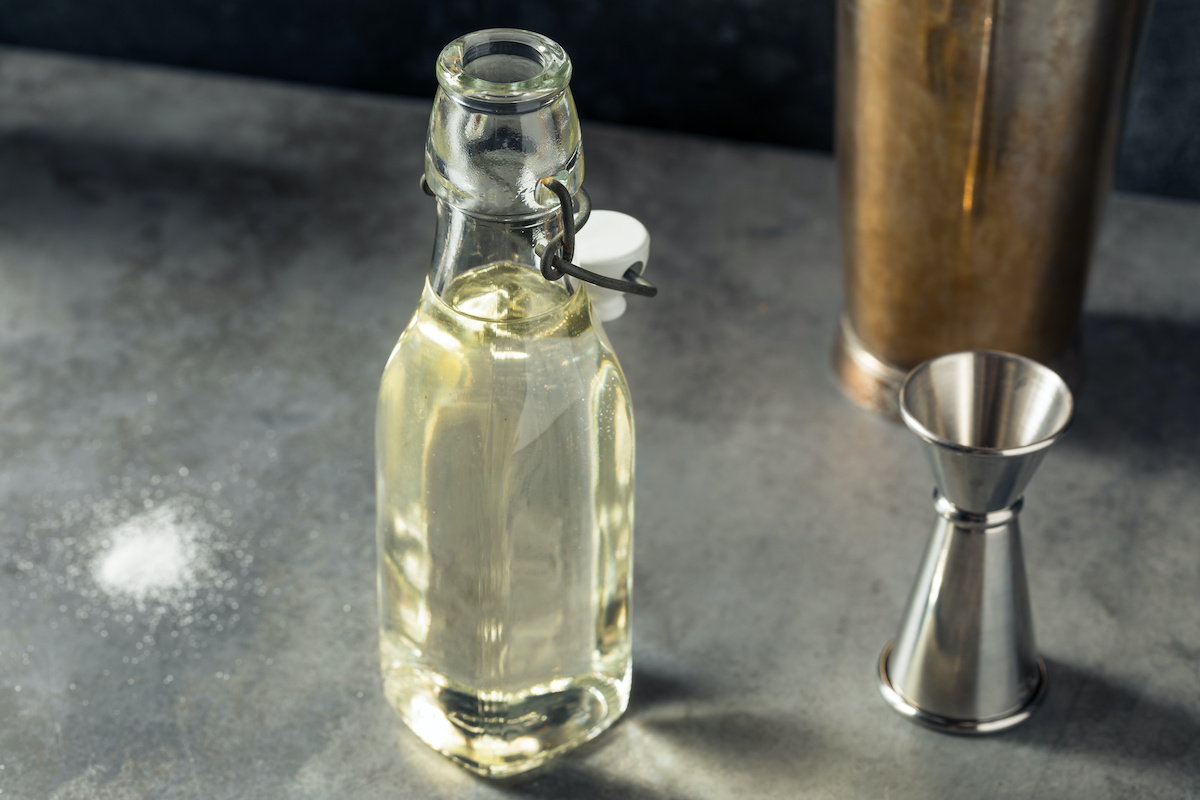
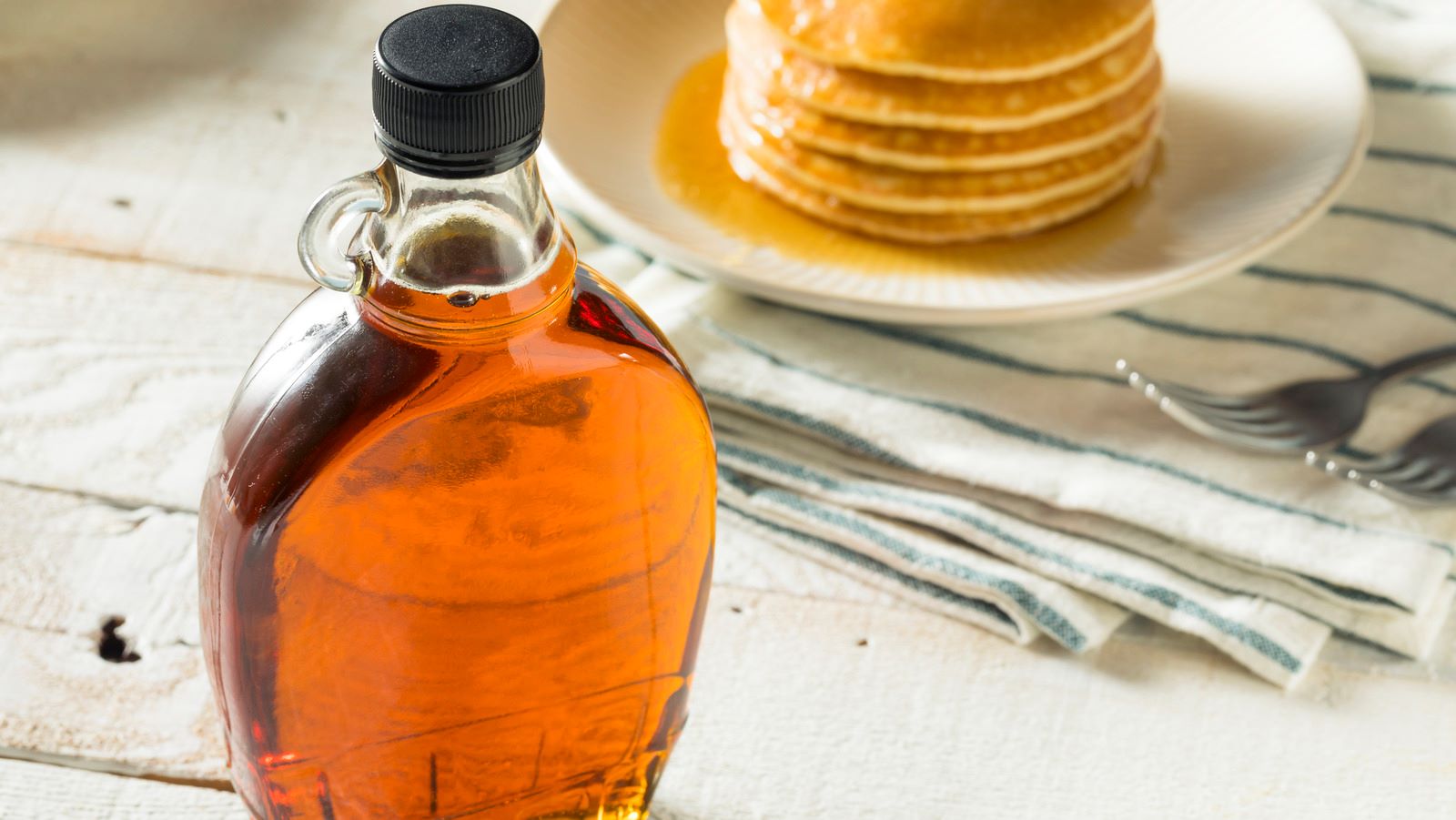
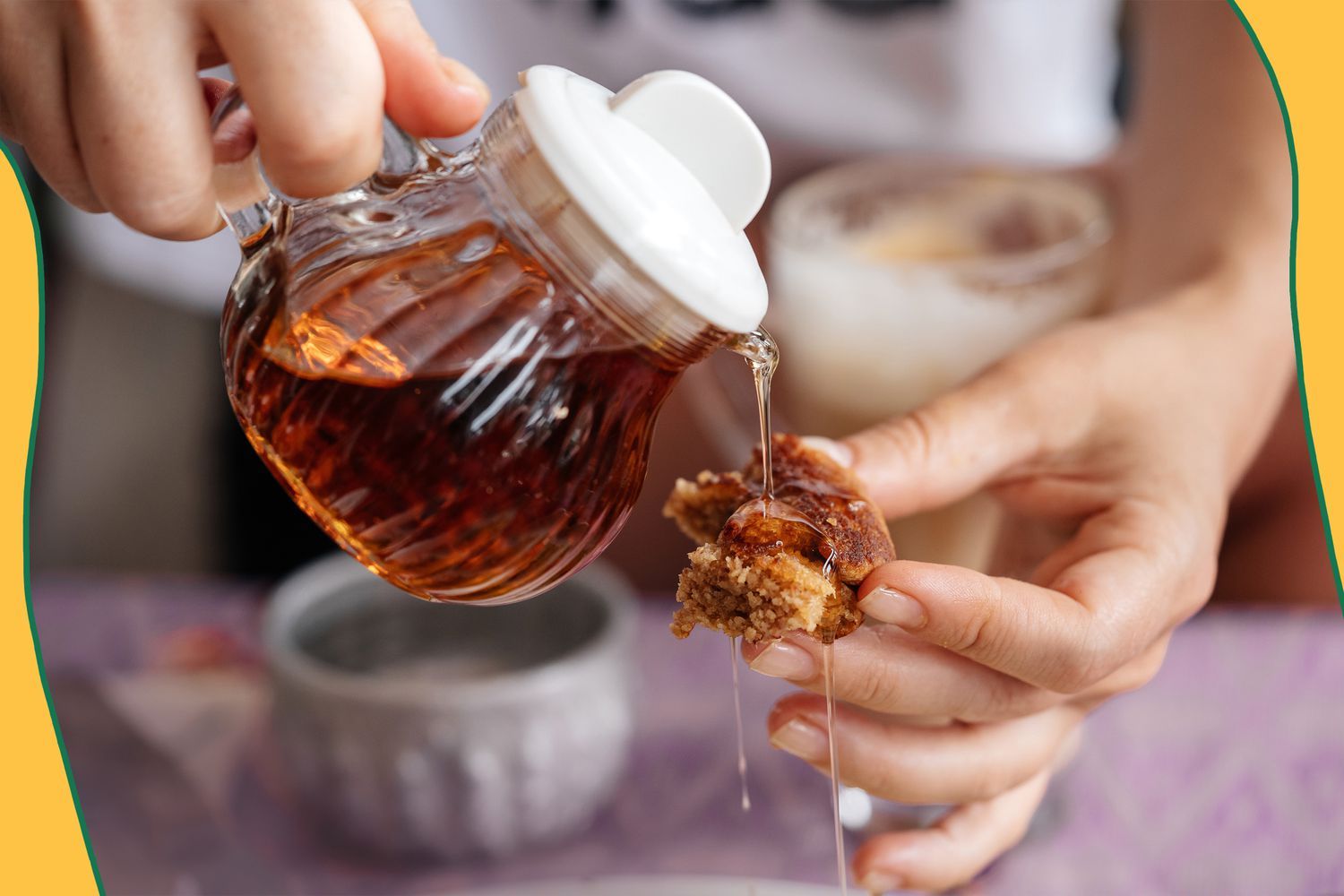
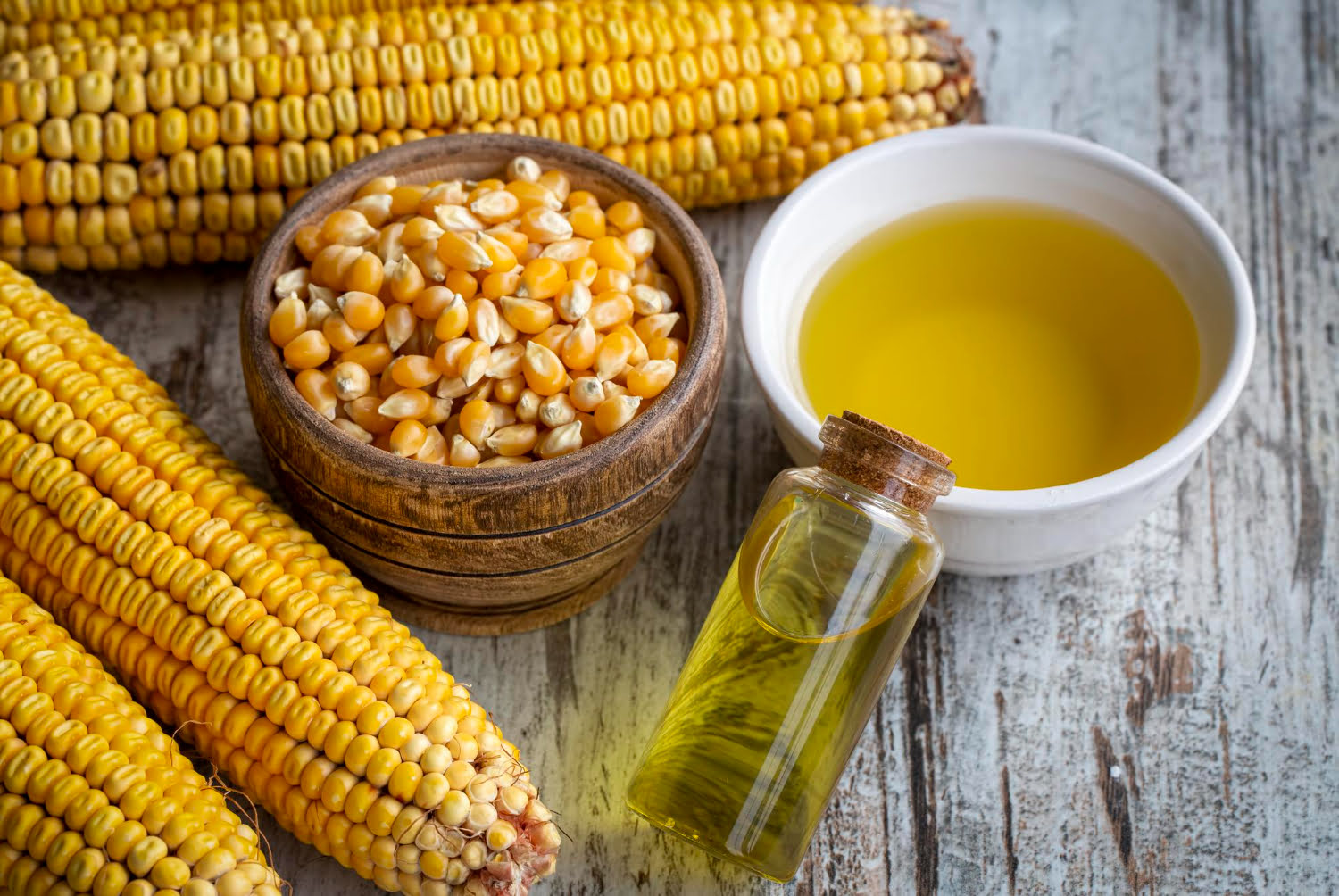

0 thoughts on “How To Store Elderberry Syrup”